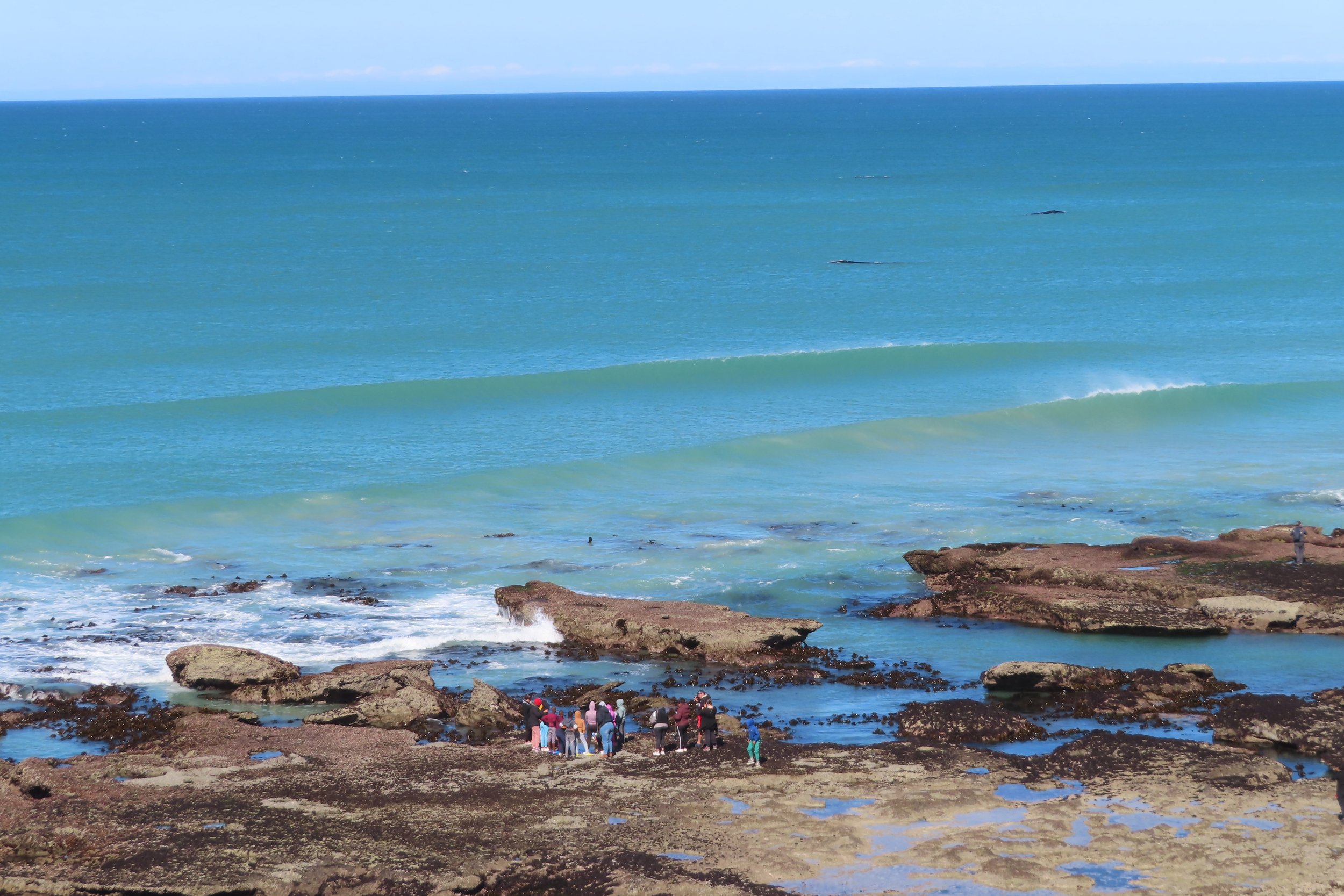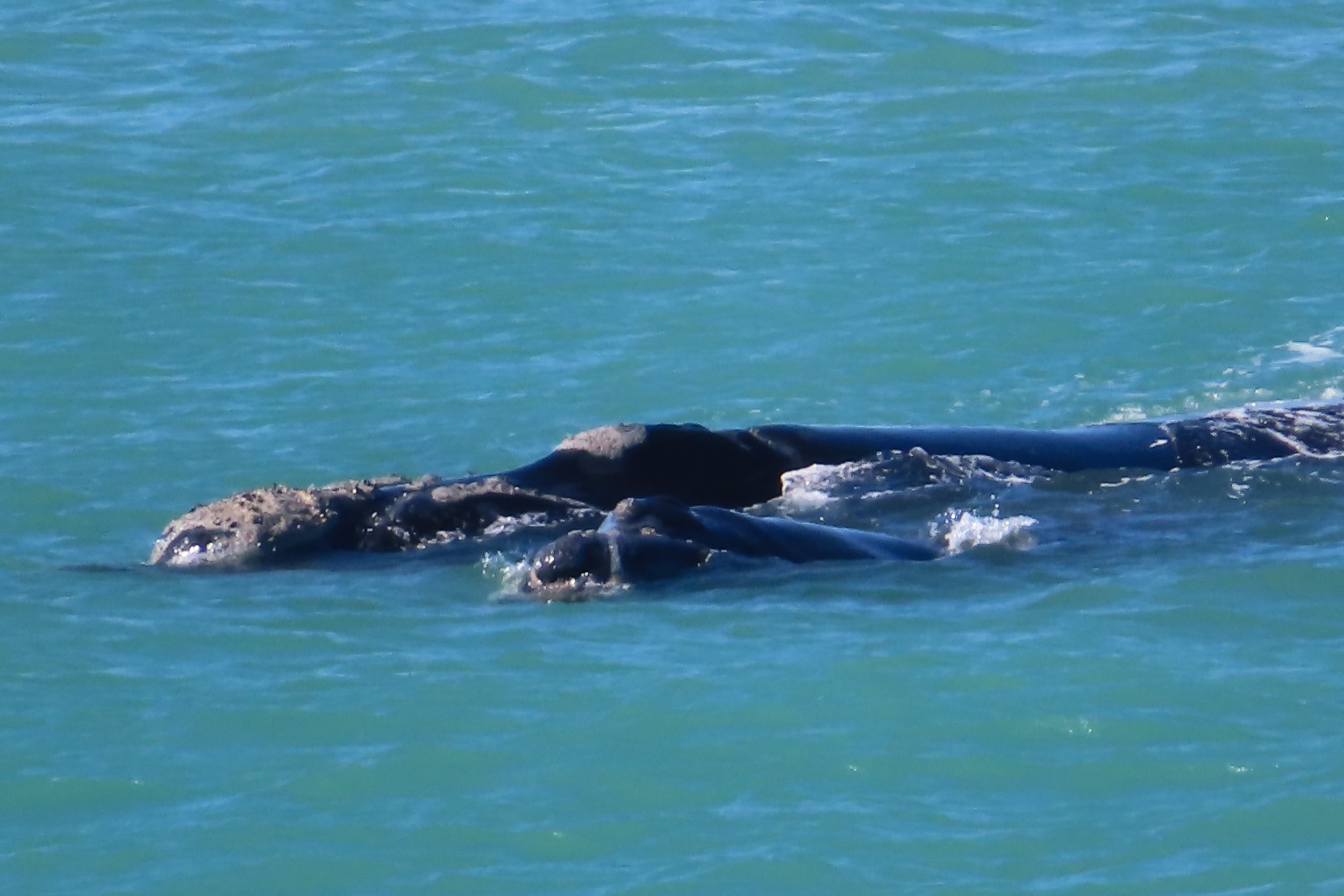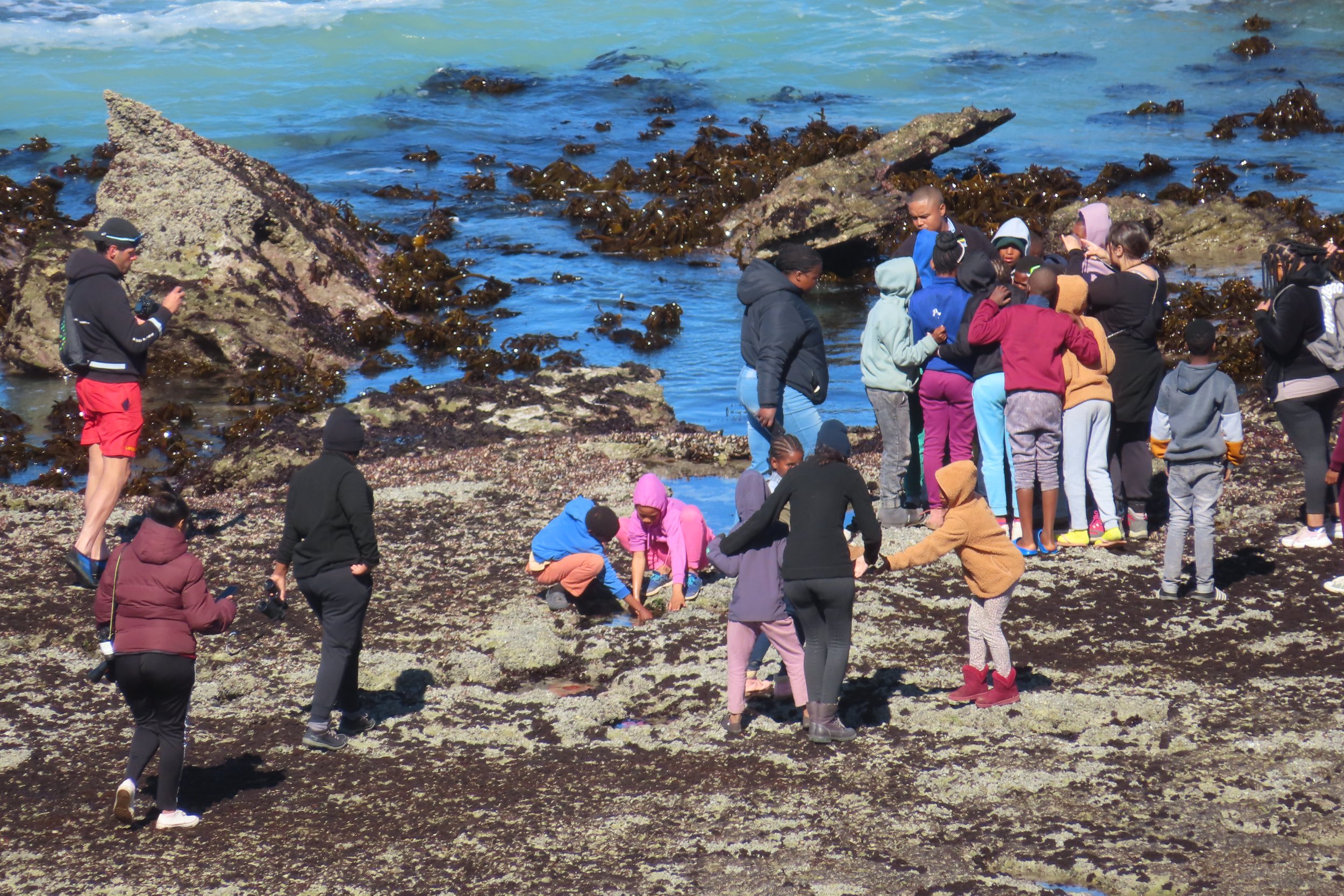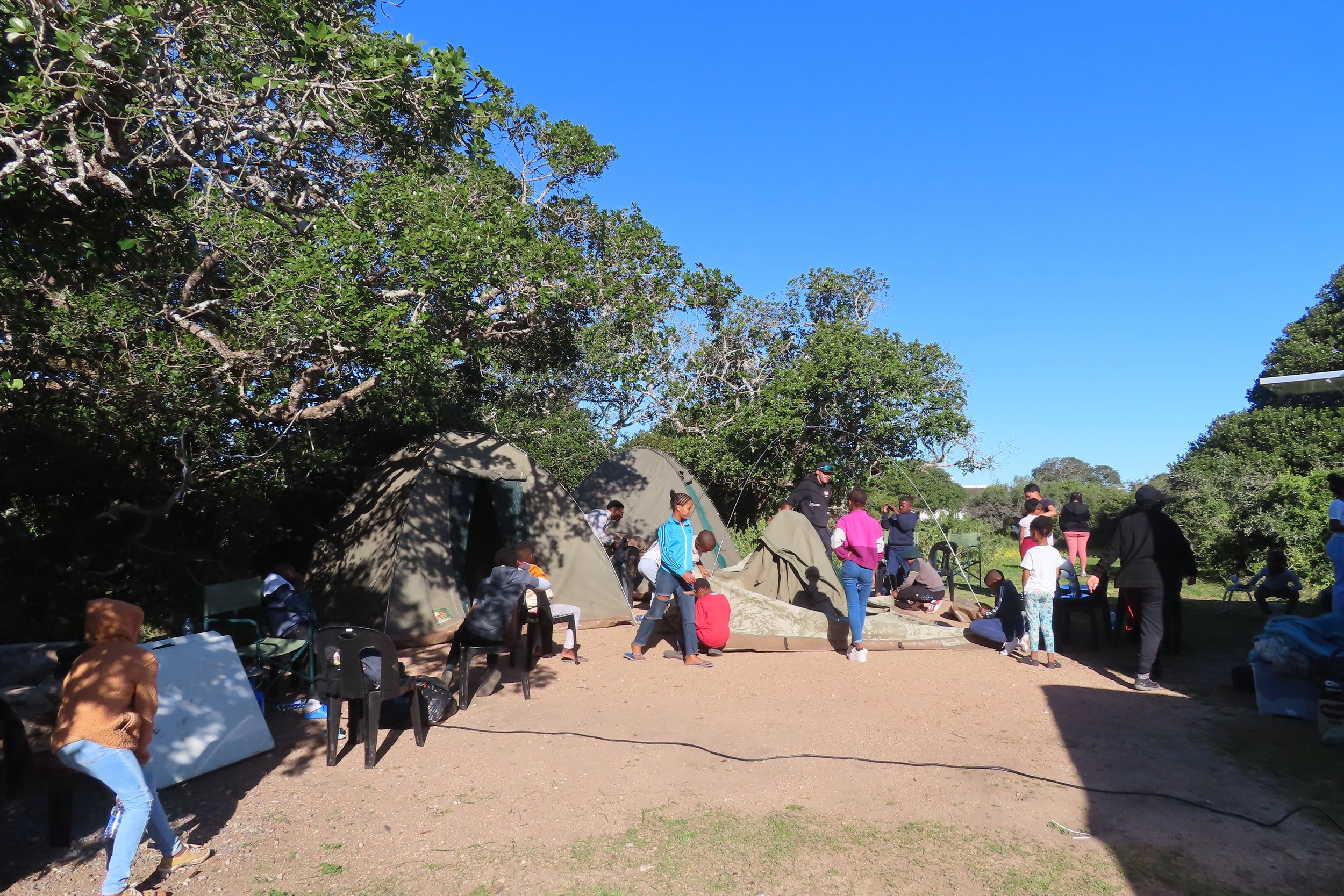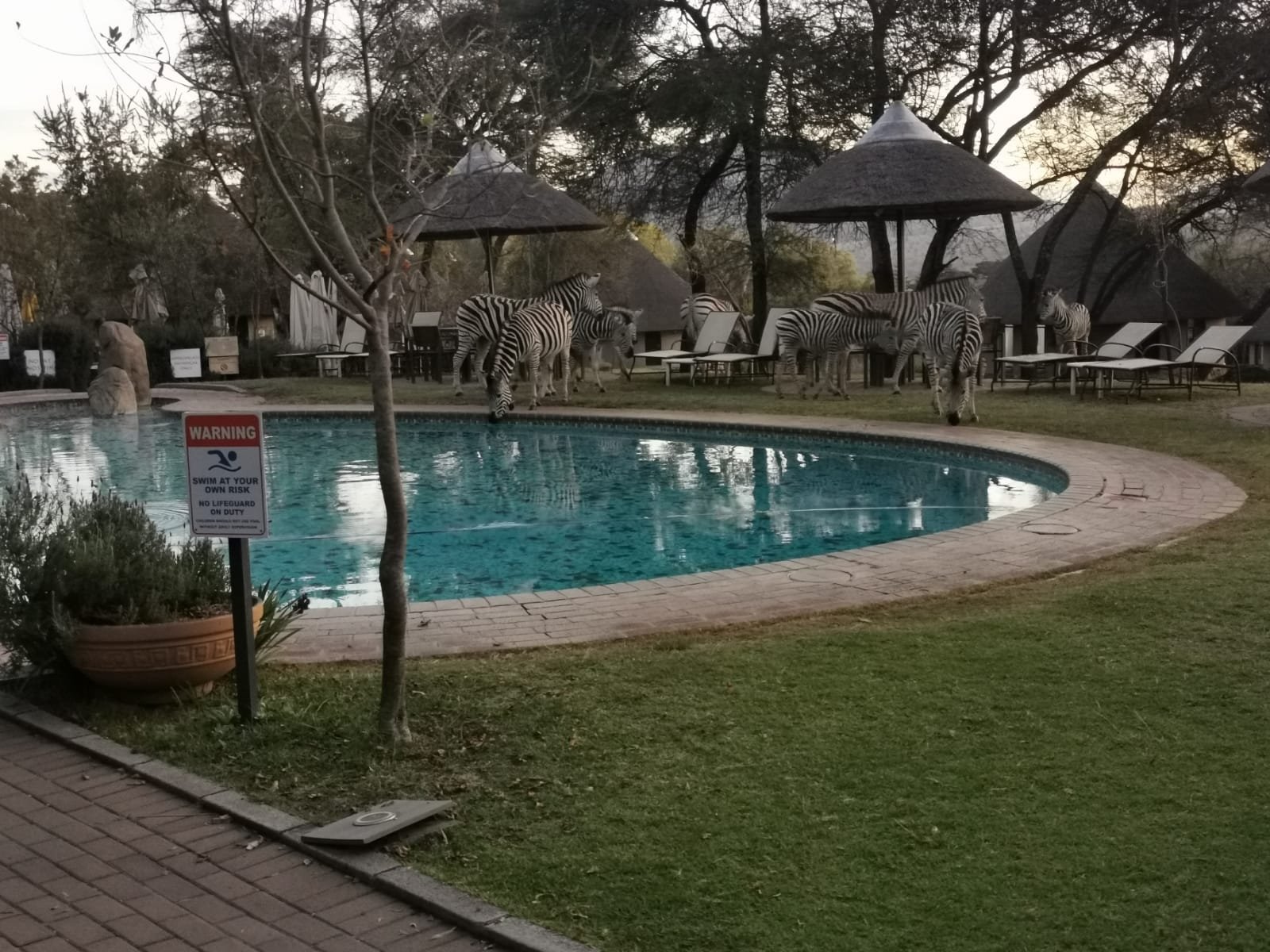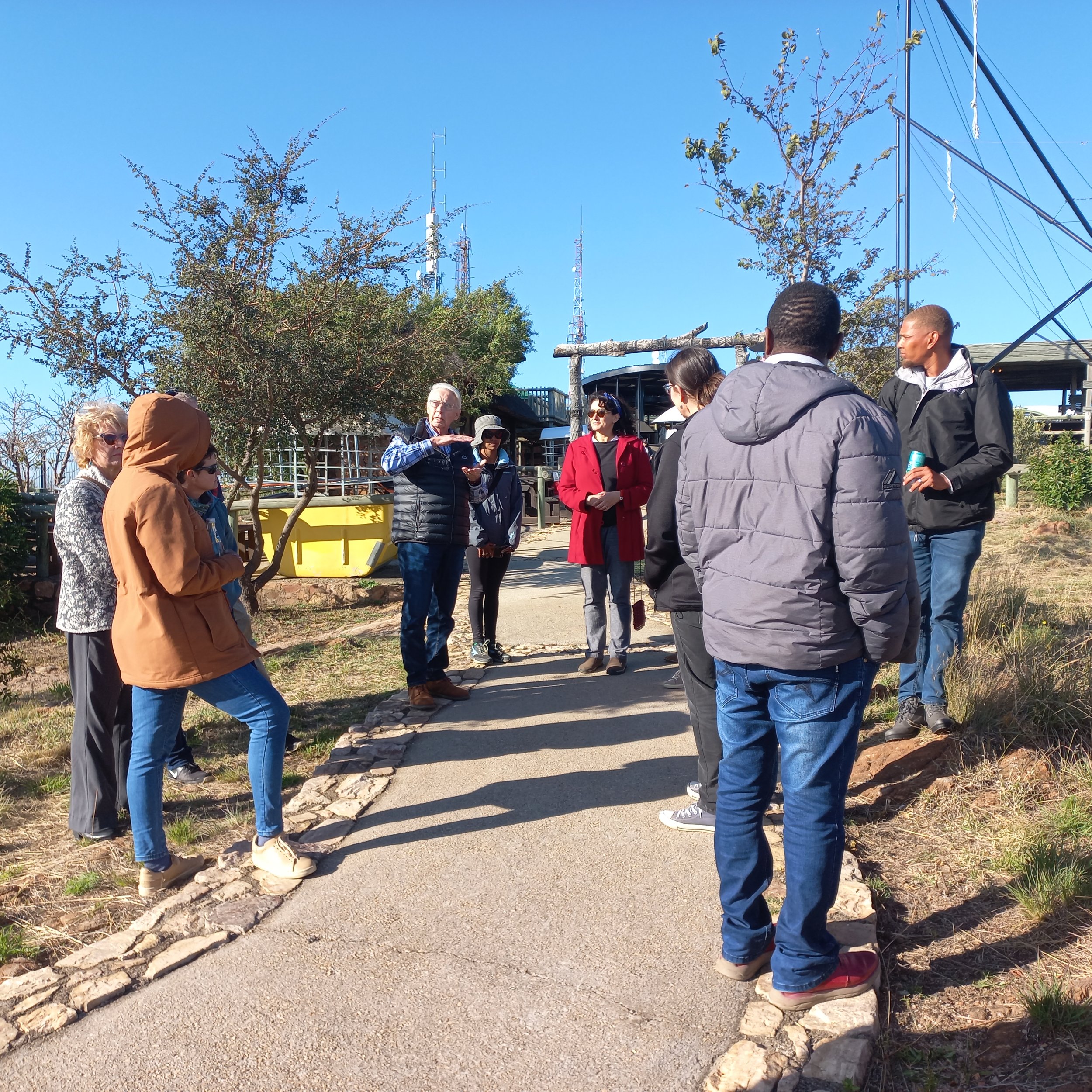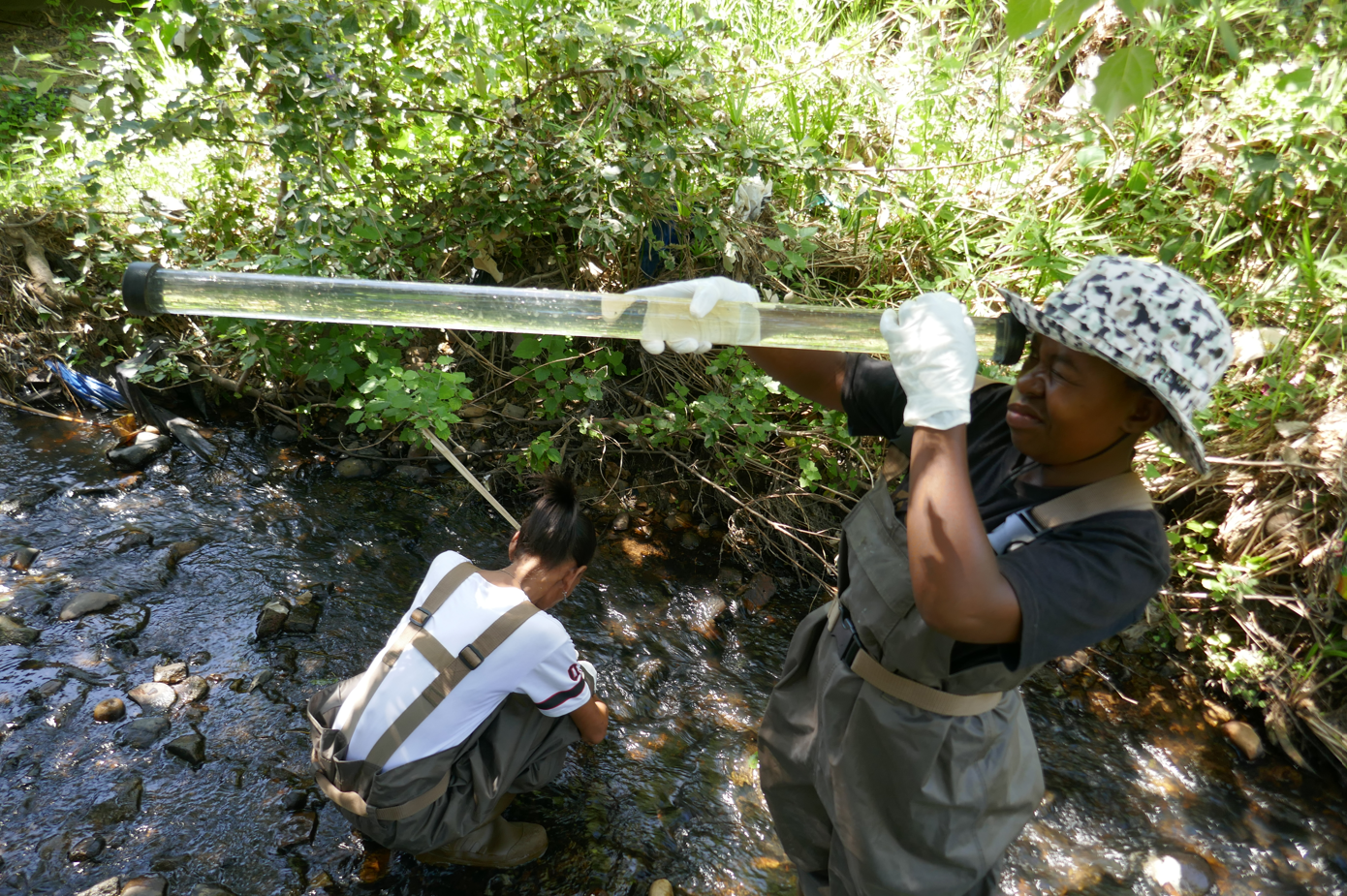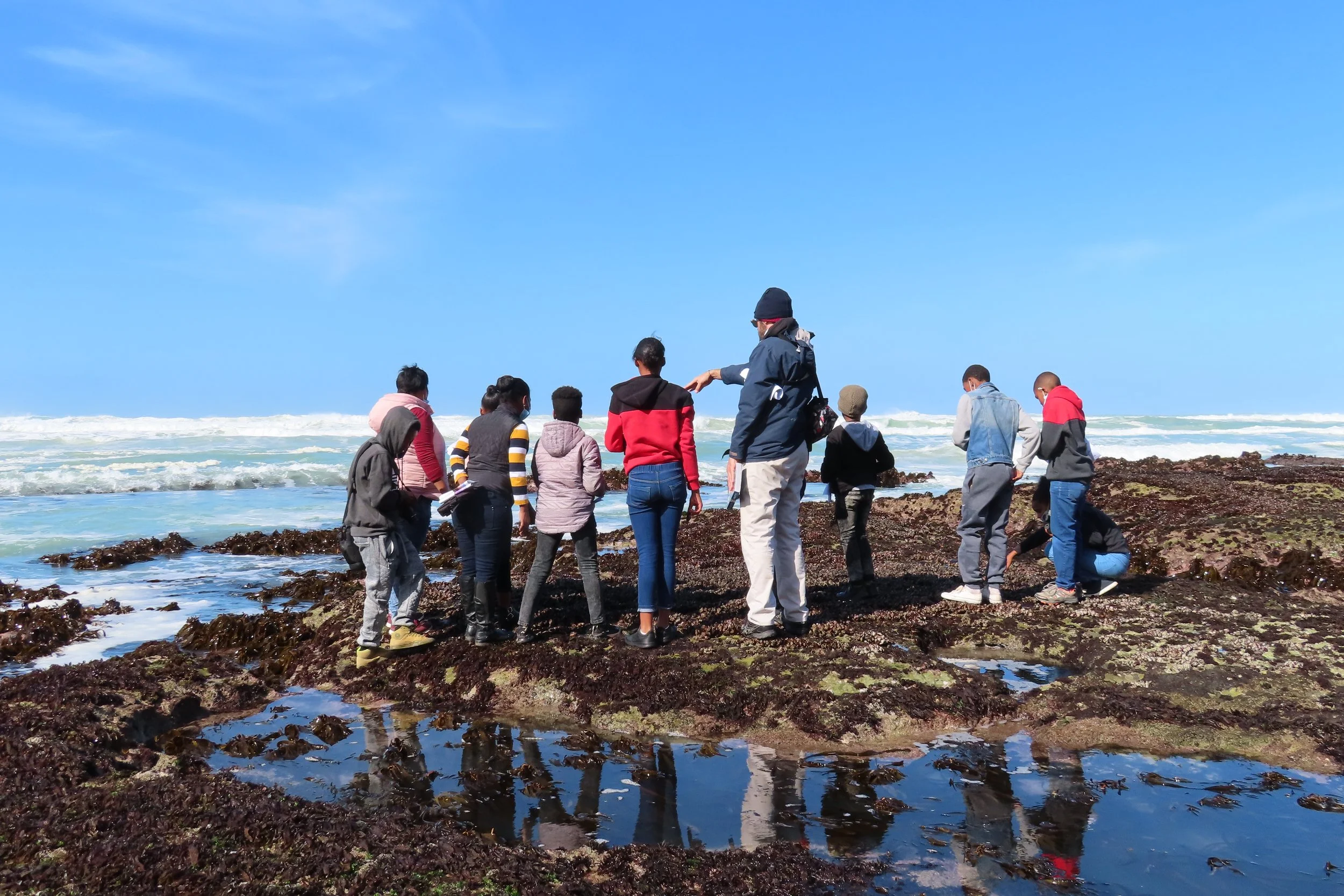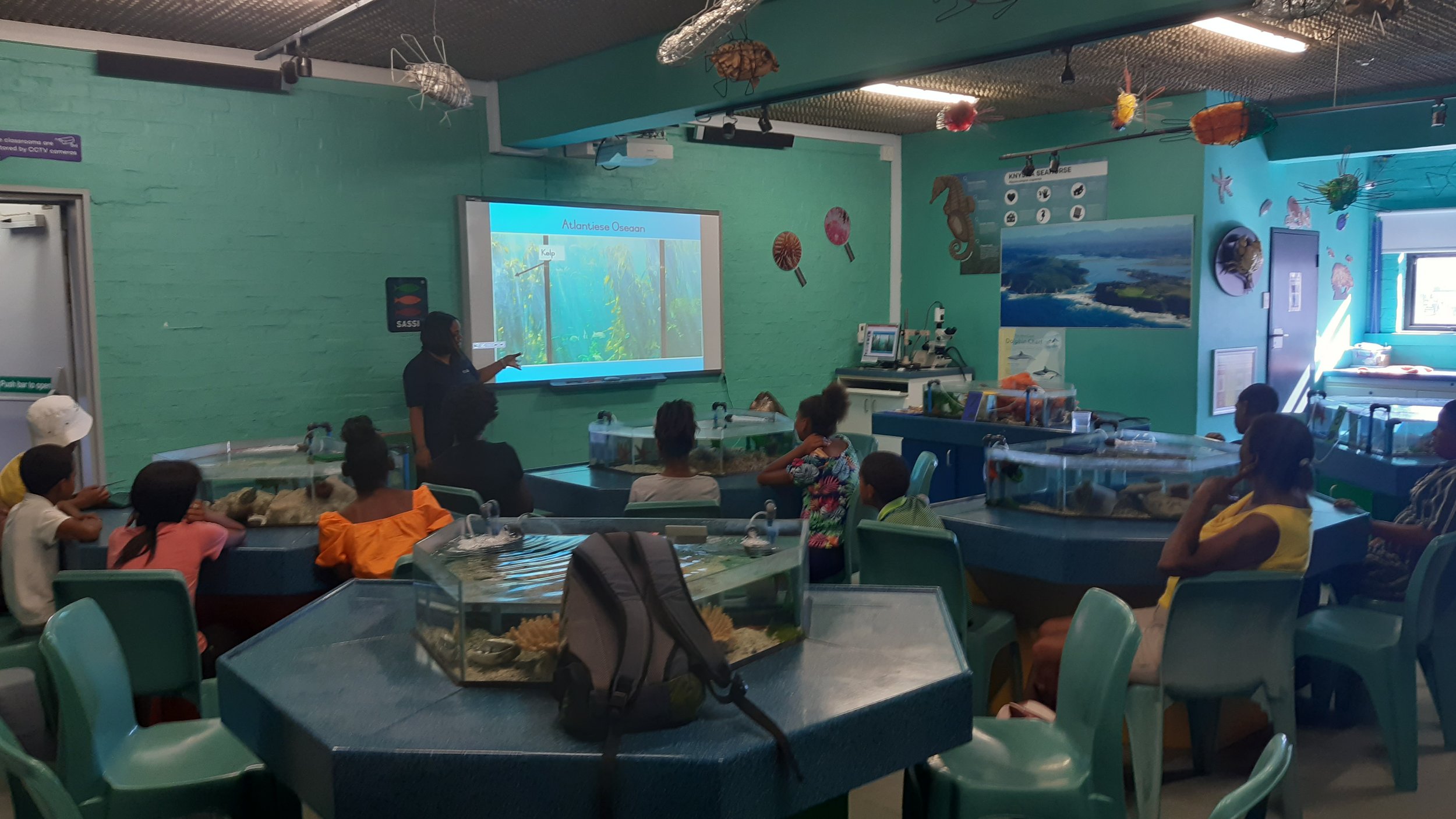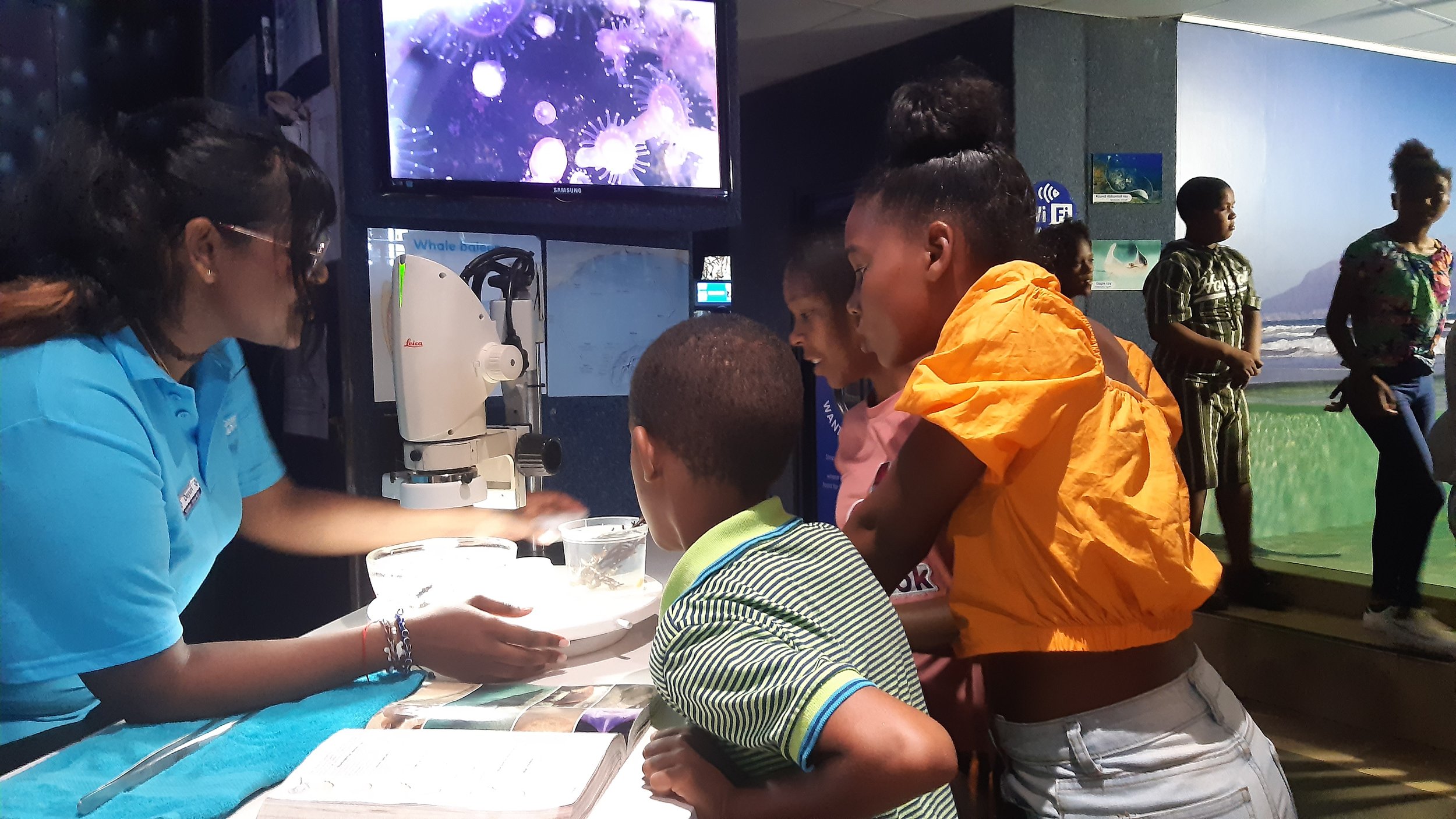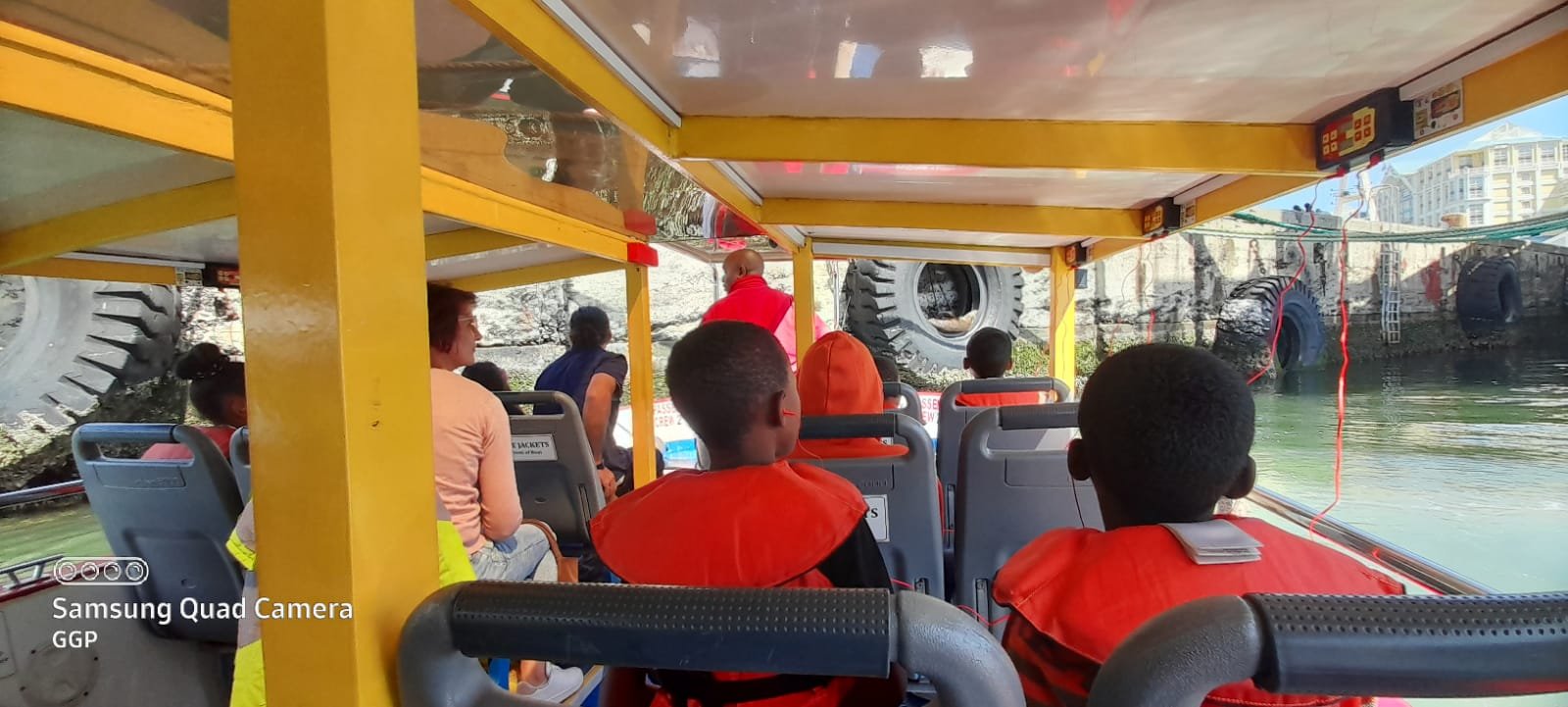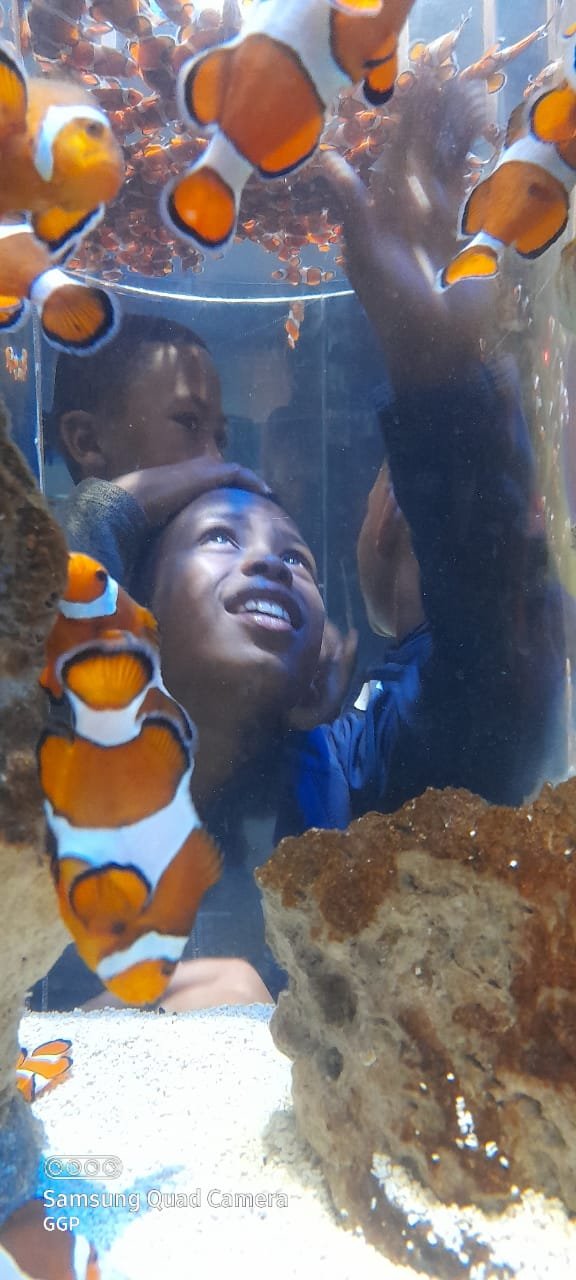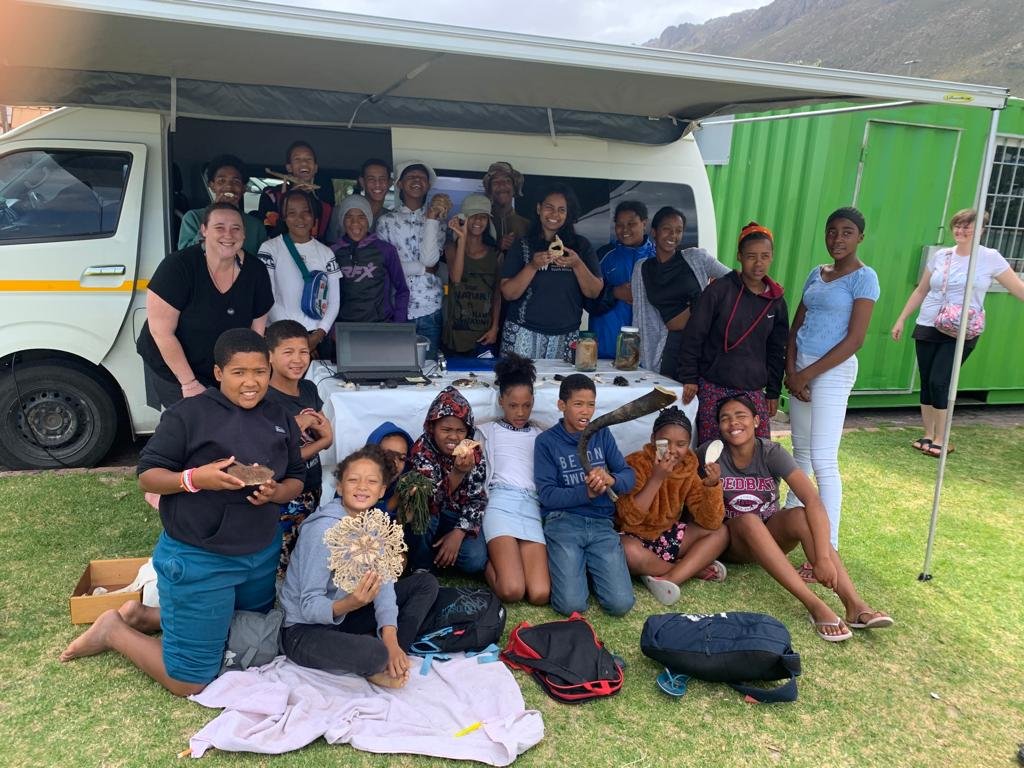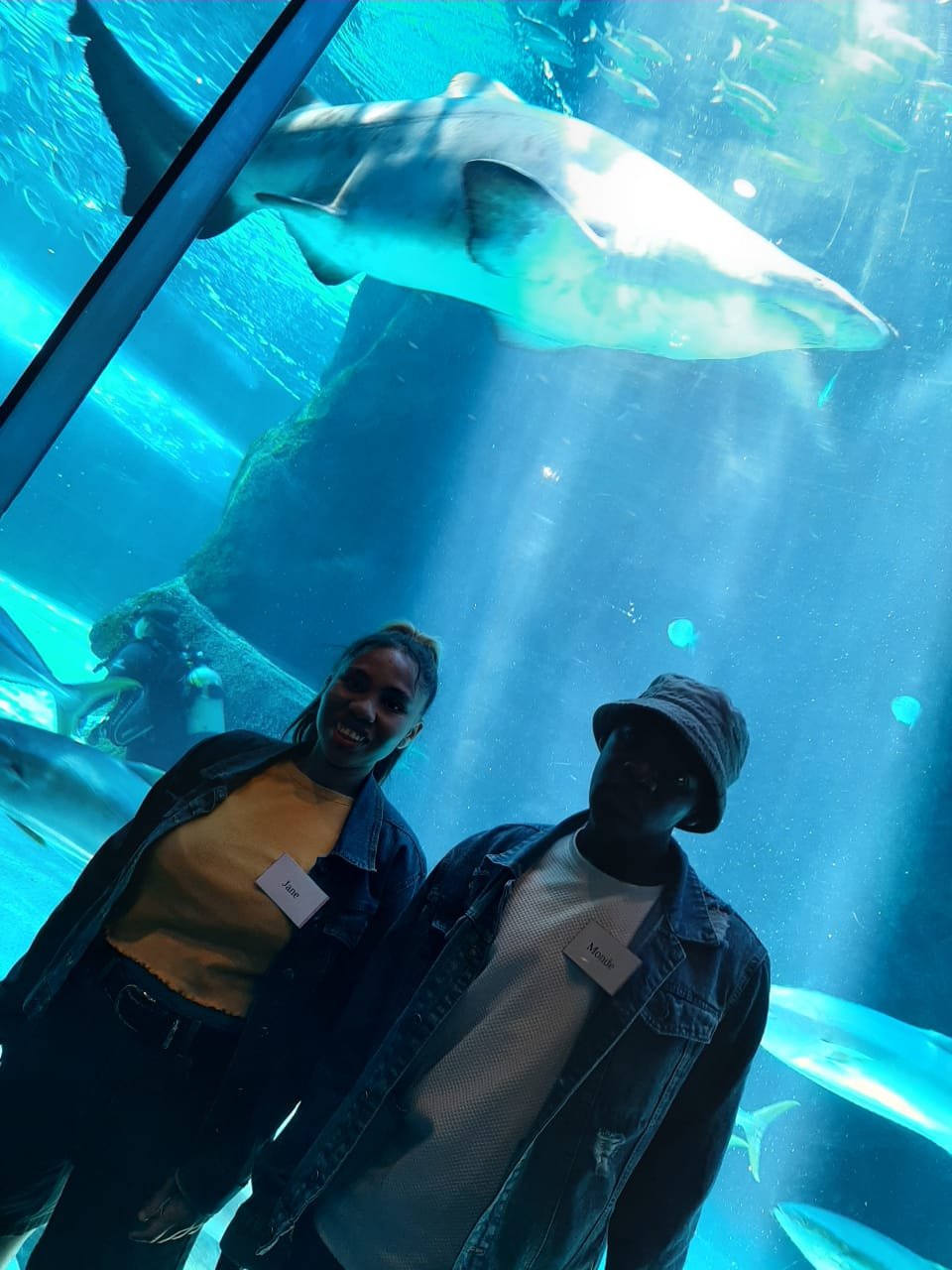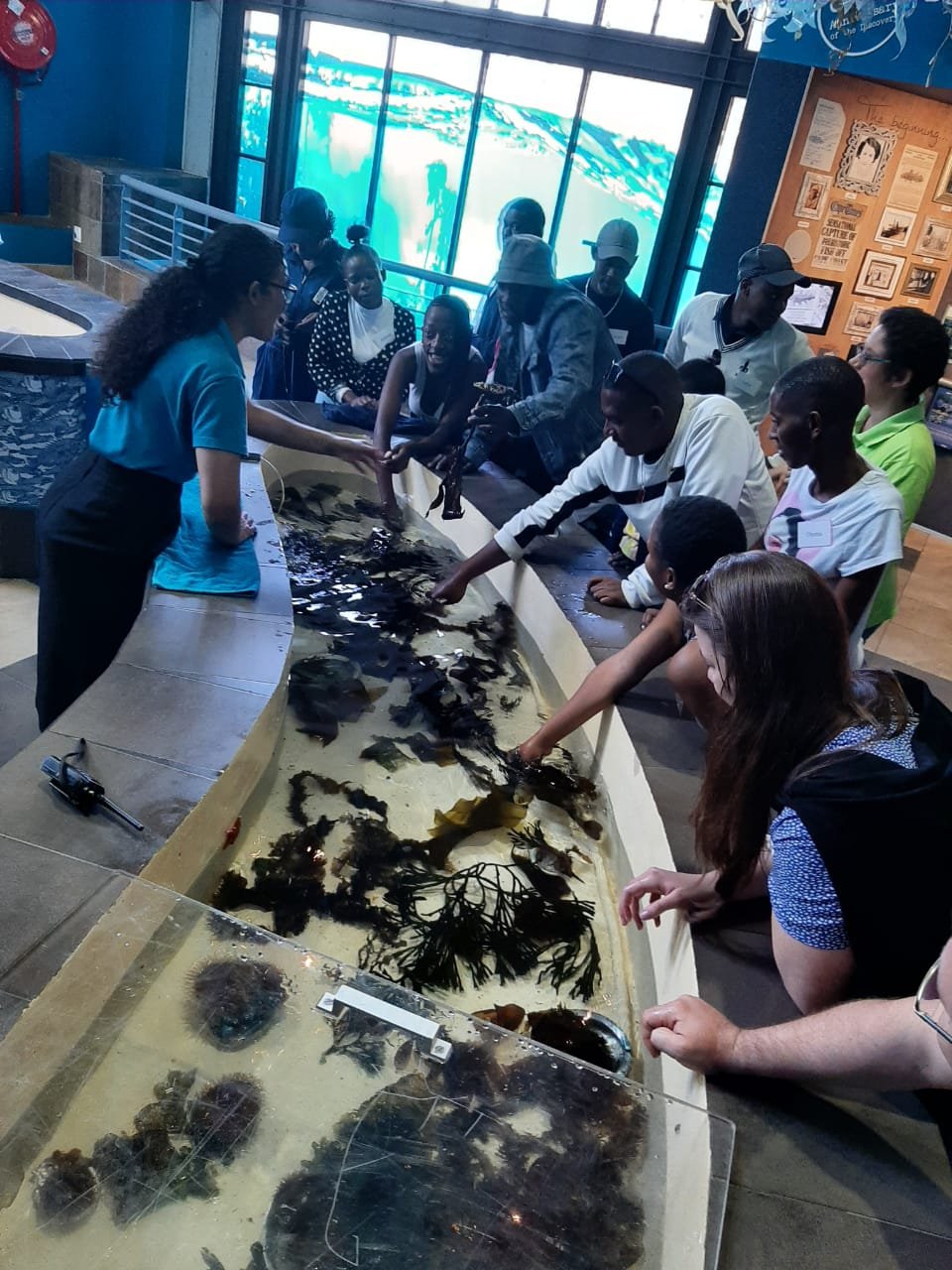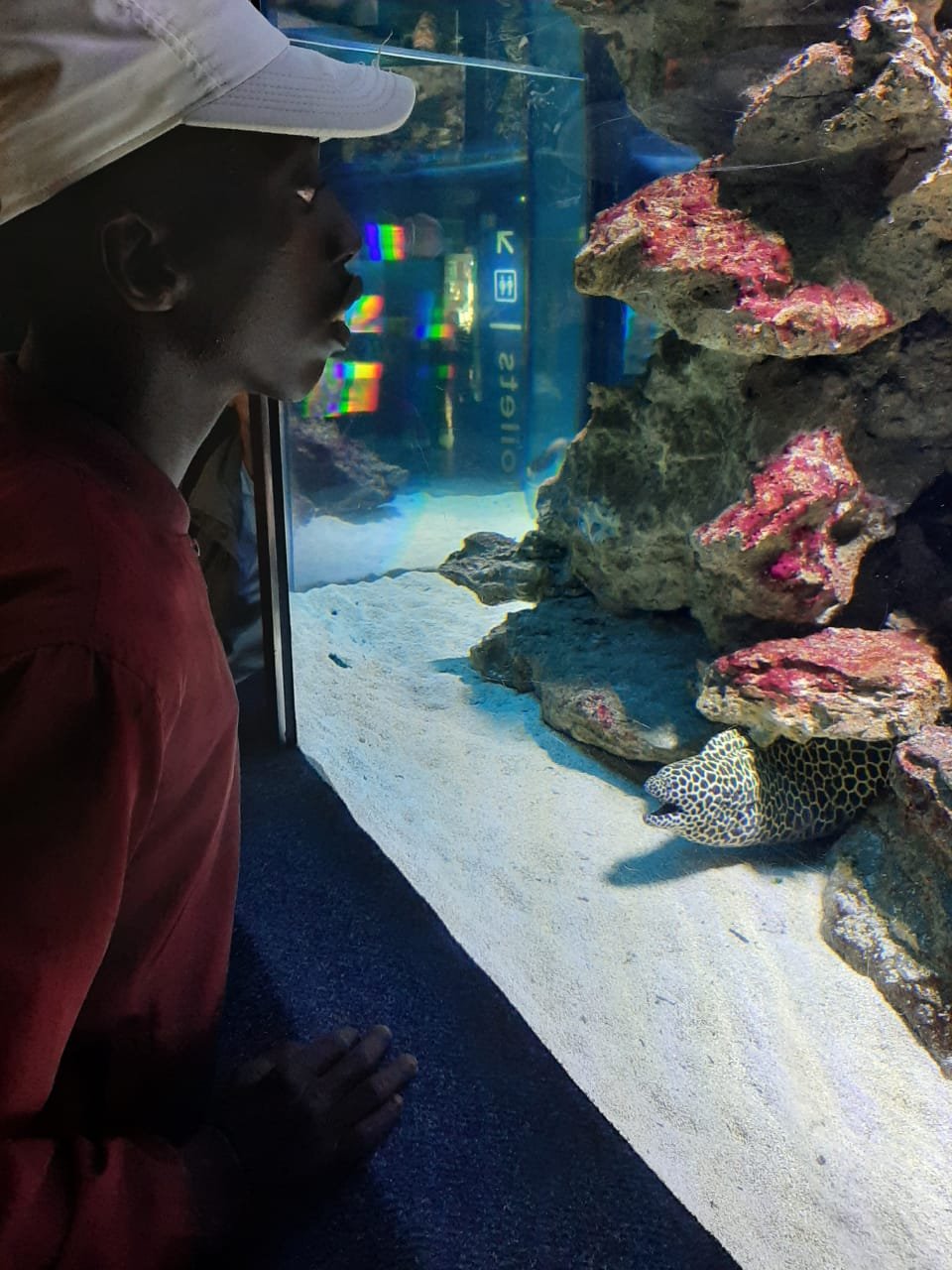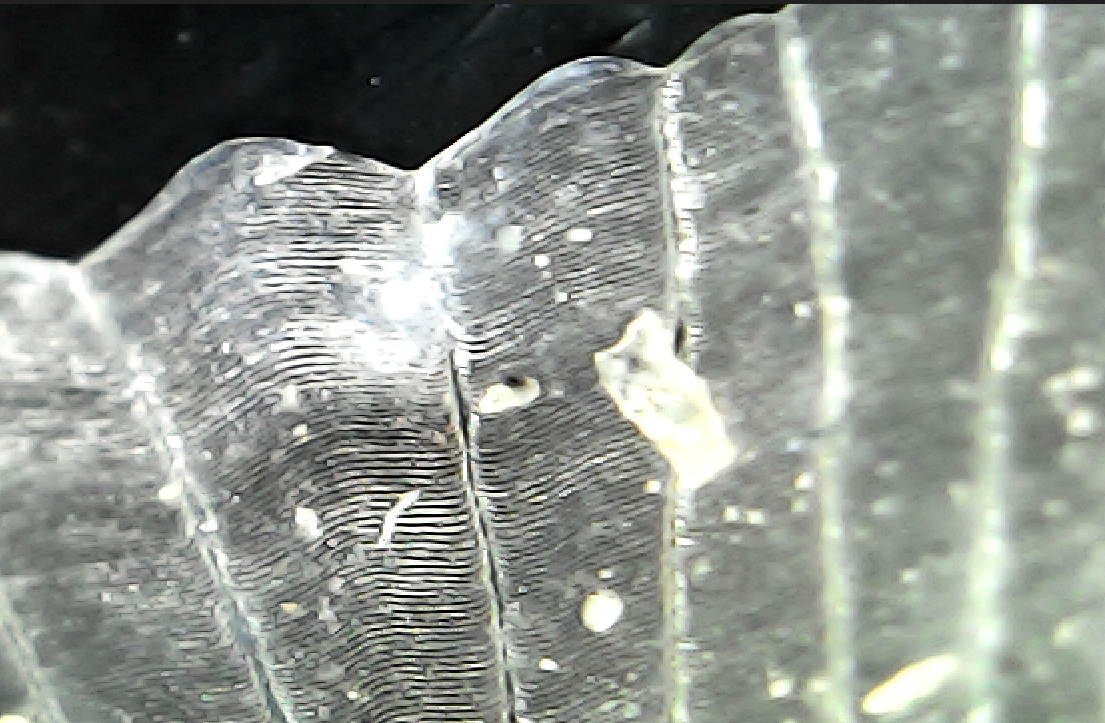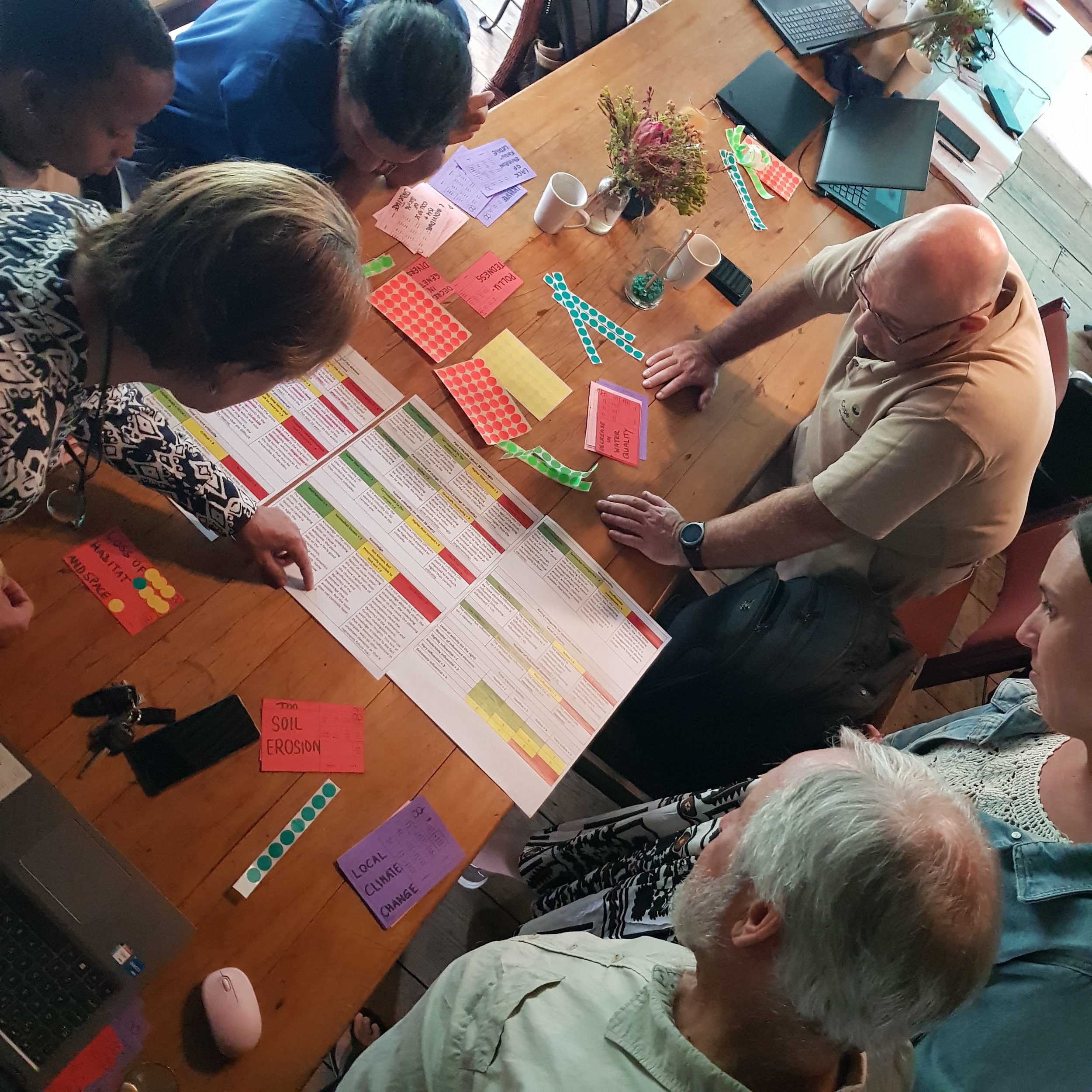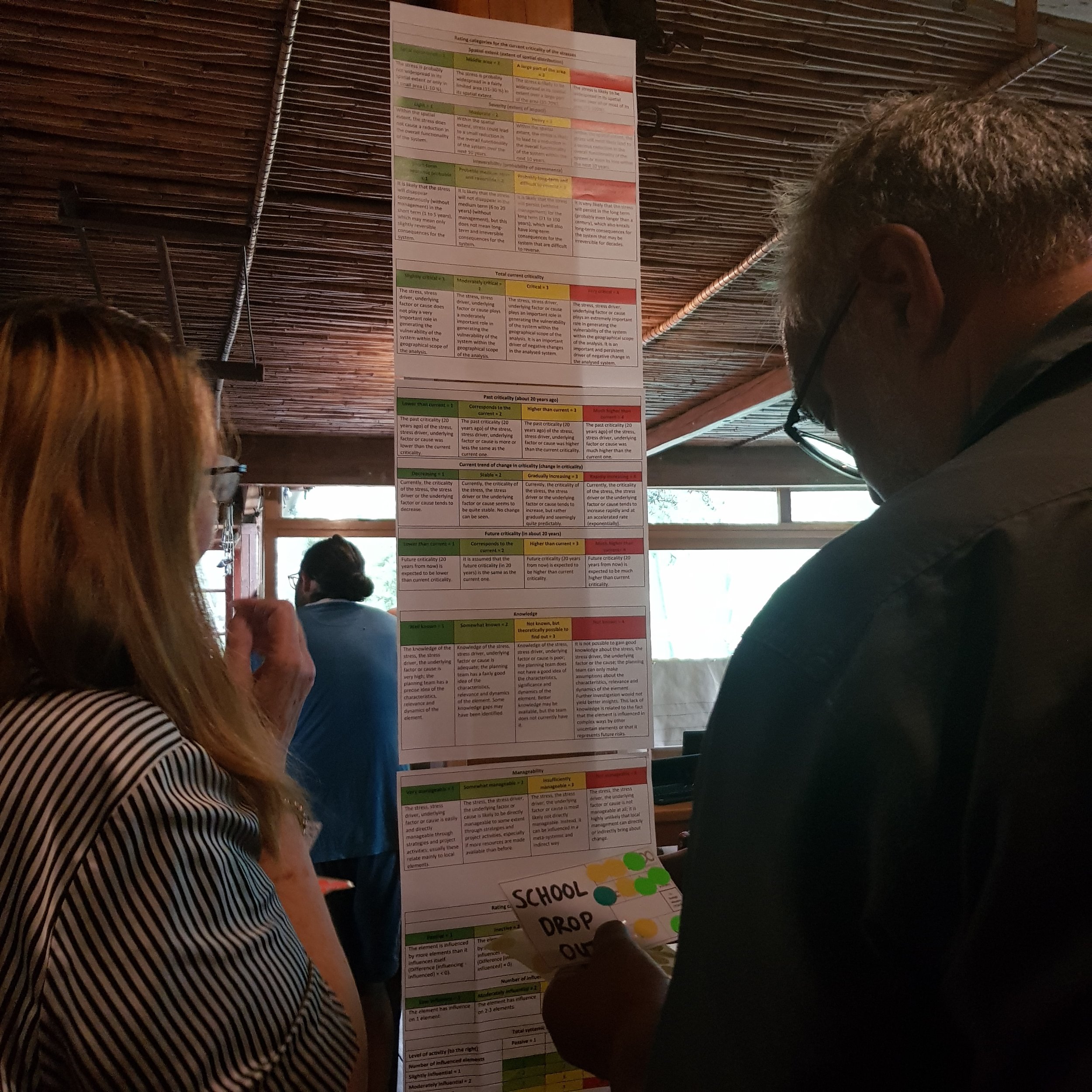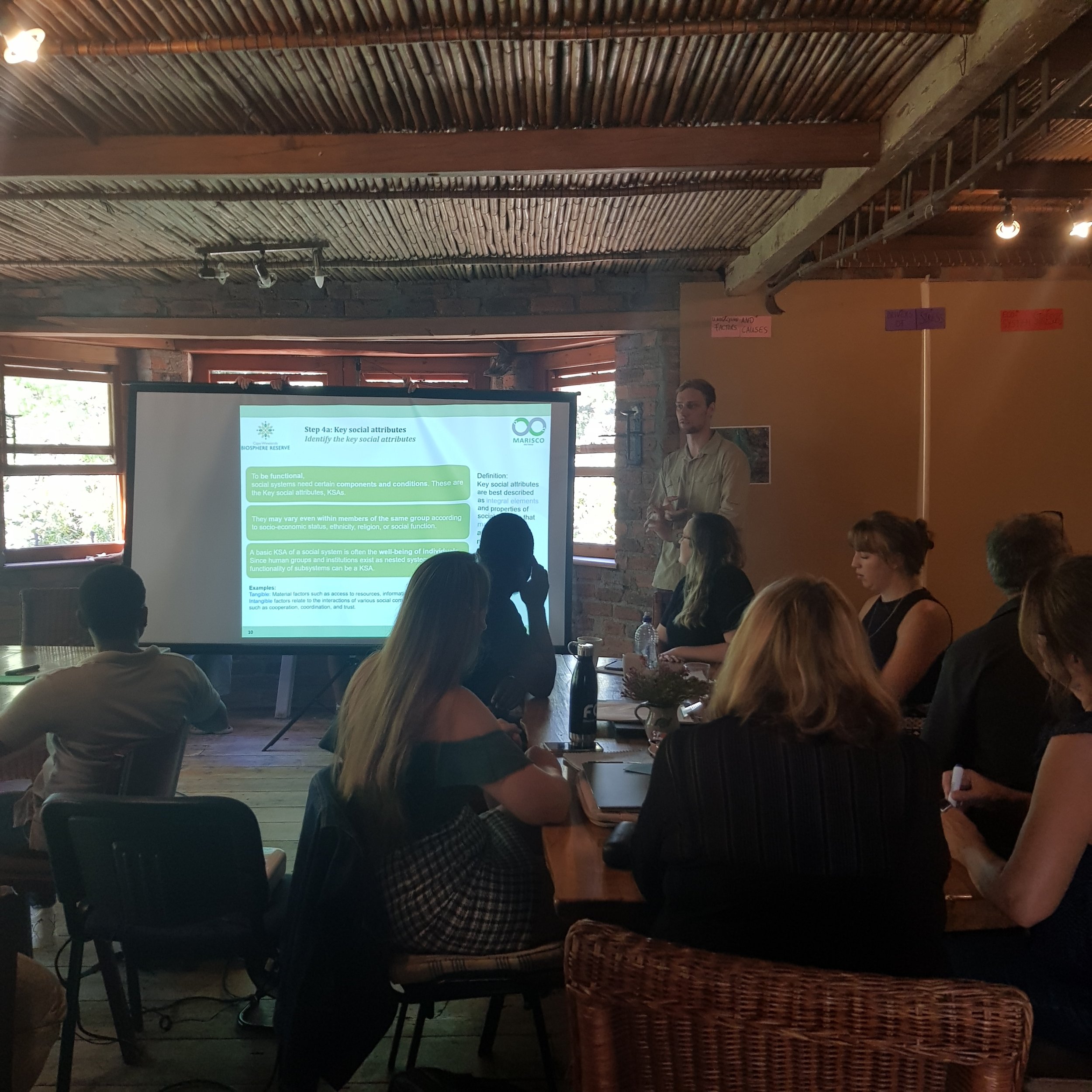The Cape Winelands Biosphere Reserve team took 23 participants from Bonnie Peoples Project, based in Bonnievale, and four visiting guests from Aidons Tous Solidarité, Luxembourg, to De Hoop Nature Reserve for a very special weekend of camping.
On route, the group stopped at what is known as the most Southern tip of South Arica – Cape Agulhas. The children were excited by the 3D monument: a big map of Africa, showcasing the mountains and rivers on the continent.
Once the group arrived at De Hoop, the participants set up their tents at the camping grounds, a first time-experience for them all. Even for our visiting Luxembourg guests, it was their first time camping! The head guide at De Hoop took the group on an exploratory expedition, sharing knowledge about the wildlife spotted along the inland Vlei.
Returning to the camp, the participants settled in and were ready for the evening’s activities. A steaming hot curry chicken stew cooked in a potjie pot over the campfire was enjoyed for dinner. Then the group did star-gazing and were shown star constellations including the southern cross and Scorpio, as well as galaxies visible in the clear night sky: the Milky Way and Clouds of Magellan.
The evening ended off with the mobile Science unit STEAM-Y* transformed into an open air cinema, for a screening of life under the sea. The clip fostered respect for marine animals and hinted at the next day’s activities which included a marine guide walk.
The next day…
For all of the participants, it was their first time experiencing a pristine marine environment with abundant wildlife and colourful biodiversity in the rockpools at the rocky shores Koppie Alleen in De Hoop Nature Reserve.
A very special time of the year, many Southern Right Whales and their calves were within sight of the shoreline for the group to see even more up close using binoculars. Creating unattainable excitement amongst the group as a whale breached the water. Being a marine protected area and World Heritage Site, the shores at De Hoop Nature Reserve is one of the world’s most important nurseries for the Southern Right whale.
The group enjoyed a picnic lunch together before returning home to Bonnie Vale, excited to share an unforgettable weekend with their families.
*Science Technology Engineering Art and Mathematics for Youth
Thank you Aidons Tous Solidarité!
The following weekend, a camp was facilitated in Kleinmond for 20 youth from the Bonnie People Project After-care School Programme, three facilitators, and the four visiting participants from Aidons Tous Solidarité, Luxembourg.
The first day, the CWBR team took the group to see penguins at Stony Point and to explore the marine biodiversity along the rocky shoreline of Bettys Bay. A CapeNature ranger joined the group sharing the history of the penguins: how the penguin colony established itself at Stoney Point. As well as some knowledge about the life of a penguin. Why they malt seasonally and go without food for that period – living off their fat reserves.
Then the group went for a very refreshing spring dip in the ocean at a beach further down the town, and later had edu-tainment playing a multitude of fun games, and ended the evening learning to create a melody alongside a song using different instruments.
The next day, before returning to Bonnie Vale, the group stopped in Hermanus for whale watching, an exploratory educational walk along Grotto beach, and fish and chips for lunch!


